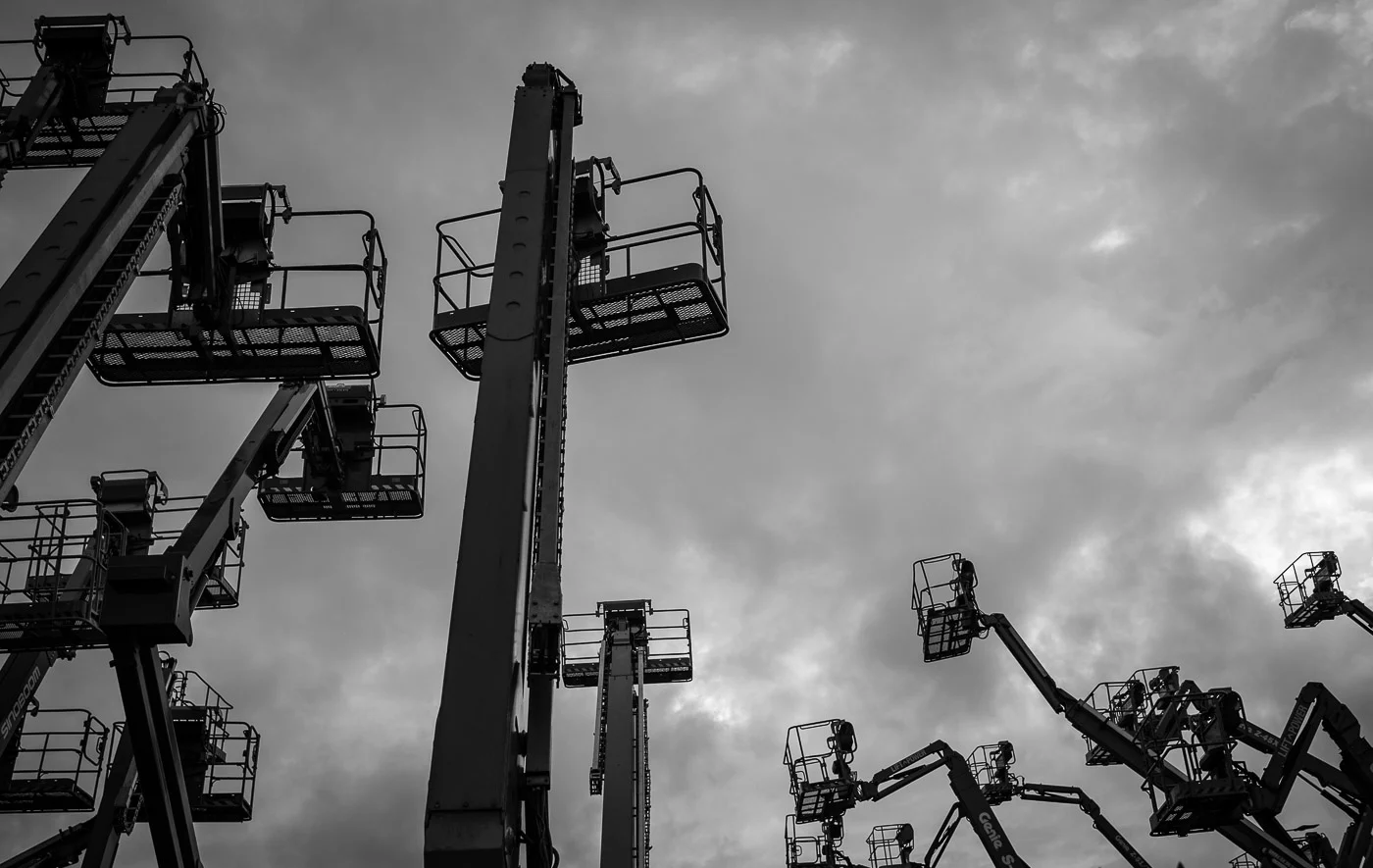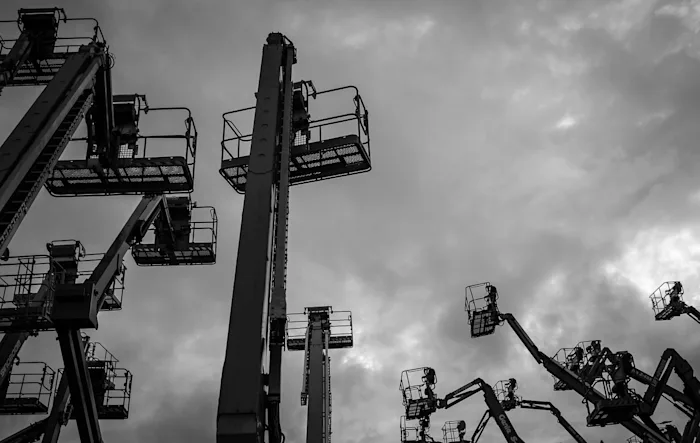The Magma of Global Capitalist War
Edgar Illas
In this reply to Maurizio Lazzarato's “Why War?” and “Political Conditions for a New World Order,” Edgar Illas argues that the intertwinement of global war and capitalism signals the collapse of the systematic potential of materialist political analysis.
Maurizio Lazzarato’s articles “Why War?” and “Political Conditions for a New World Order” point to a fundamental question: the structural role that war plays in global capitalism. Critical theory has tended to overlook this question and, as Lazzarato observes, this has had a crippling effect on politics: “Our current political impotence is the direct consequence of the exclusion of war and civil wars from critical theory.”1 Indeed, Foucault already detected the exclusion of the problem of war from the production of knowledge. Critical conversations, he wrote, have presupposed for a long time that “knowledge and truth can never be found on the side of violence, disorder, and war” and “can only belong to order and peace.”2 Lazzarato, however, does not take Foucault’s epistemological path, instead attributing the omission of war to another concrete historical exclusion, “namely, that of class struggle, that is, of revolution.”3 For him, the problem of war leads to the Marxist question of systemic change.
The link between war and global capitalism contains a painful paradox. The paradox, as Lazzarato describes it, is that, while wars in globalization are a product of the logic of capital, “they are nevertheless inexplicable in terms of the categories supplied by the critique of political economy.”4 We know that capitalism generates wars all over the planet, but we lack the conceptual equipment to understand the productive function of violence. For Lazzarato, this theoretical failure is not a deficiency of Marxism but is, again, the result of abandoning class struggle and revolutionary politics. How can we rectify this error and begin to theorize the mix of capital and war? Lazzarato proposes that we put Marx’s theory of primitive accumulation in dialogue with Carl Schmitt’s concepts of the enemy and the founding of legal orders or nomoi of the Earth. Only by means of such a dialogue can we provide ourselves with the theoretical tools to understand the present conditions for political struggle.
However, a contradiction undermines Lazzarato’s account of the present. The basic question is: if global war is inexplicable in terms of the critique of political economy, then how can we continue to rely on central materialist concepts such as “primitive accumulation” or “class struggle” to grapple with it? And even if we consider “revolution” a call to action rather than a critical term, its raison d’être is still determined by the frame of the mode of production that has ostensibly collapsed as a theoretical paradigm. Moreover, Lazzarato’s retrieval of Schmittian categories does not aim to reflect on the history of legal orders but rather serves to reformulate the question of the division between capital and labor. In connection with primitive accumulation, Lazzarato remarks that capitalism is founded on an original separation between owners and non-owners; private property does not originate from production but from acts of conquest and appropriation. Throughout Lazzarato’s analysis, then, the problematic of capital takes precedence and war is approached not as an irreducible event but as a phase or condition of the formation of capitalist orders. Hence the logical problem: Lazzarato diagnoses the theoretical inadequacy of materialism and yet he continues to adopt this frame to define our current conditions.


Before addressing this problem, let us examine the crucial point in his diagnosis. The main thesis (first developed with Éric Alliez in Wars and Capital5) is that global war emanates from the interdependence between American finance capital and state power. The US depends on “the power of finance” and therefore must use its military force to impose “dollarization” throughout the globe, thus producing a “single state-capital machine” in which the economy and politics “pursue distinct but converging ends.” Finance entails an inherent logic of primitive accumulation, as it feeds off social and natural productivity, and it projects a global nomos based on a permanent state of exception. For Lazzarato, the connection between financial debt and war is direct:
The US is incapable of getting out of the vicious circle of annuity, so war is the only solution. As early as 2008, it was clear that the US economy was based on the production and distribution of financial annuities. Hence the willingness to pursue and expand war, to continue to finance and legitimize genocide, to bring new fascisms to power everywhere.6
On the one hand, Lazzarato locates this linkage in the contemporary period that we identify with neoliberalism: he refers to the killing of Salvador Allende in 1973 as a founding moment of this financial order, and to the 2008 crisis as another revelatory event. On the other hand, he observes that the use of violence has destroyed the neoliberal logic: “many still believed [neoliberalism] to be in force when, in fact, it is dead: killed by fascisms, wars, and genocide.”7 Here we encounter another logical problem that shows, again, that it is not easy to establish the linkage between finance and war. Two premises enter in contradiction with each other: American finance needs military work to impose its own financial conditions, and yet acts of war end up destroying the very economic logic of power — neoliberalism — that initiated the production of finance and war to begin with. The result is autophagic: a financial system that devours the entire world through its own logic of financialization. In other words, neoliberalism needs war but wars contribute to building a post-neoliberal world while simultaneously destroying it.
To navigate these contradictions, we may start asking concrete questions about the usefulness of this diagnosis. A first, evident one is: is it accurate to say that all conflicts in the globe are caused by the US financial-military power? Don’t most conflicts today appear to be complex and multipolar assemblages involving local, regional, and global economic interests that blend together all manner of theological and ideological contentions? Irreconcilable pressures seem to traverse the never-ending conflicts in Israel/Palestine, Ukraine/Russia, Syria, Sudan, or the narco-wars in Central America, to name the most visible. Or, to be less fatalist, we can say that, although we know perfectly well that all hostilities in globalization have to do with money — to paraphrase Althusser, the lonely hour of the last instance of the economy appears in global war — at the same time, the fixed logic of finance does not explain much of the concrete contradictions of each conflict. Even Althusser’s notions of “overdetermination” and the “singularity of conjunctures” do not seem elastic enough to grasp such a proliferation of contingencies.
Another unhelpful effect of the link between war and finance is that it posits a reality of inescapable exploitation and complete control. The paradox of this critique of war is that it precisely deactivates the capacity of violence to change the state of things, as wars come out as always-already capitalist and fascist. Such a critique places us in a defeatist position; in this regard, it is symptomatic that Lazzarato turns to civilizational terms and talks about the “definitive twilight” of the West, as if American fascism had diluted the force of Western political thought. In sum, the link between war and capital entails two risks: the epistemological risk of making all contemporary wars look the same — under the night of the state-capital machine, all cows of war are black — and the political risk of conceiving twenty-first century powers through the totalizing lens of twentieth-century fascism.
These contradictions, however, should not be a reason to discard Lazzarato’s reflection or the Marxist critique of capital. On the contrary, in a dialectical move, or perhaps through a gesture as incongruous as the reality of global war, the theoretical shortcomings of materialism arise from the illogical dynamics of conflict in our conjuncture. Global disorder forces us to think within the instability of permanent conflict, to walk through the “fog of greater or lesser uncertainty” that defines war according to Clausewitz.8 The intractable contradiction that we face is that, in the final analysis, the intertwinement of global war and capitalism signals the collapse of the logic of the system itself. The non-logic of war entails the dissolution of structural causality, as it destroys the system that it itself produces. Thus, we must take the step that Lazzarato is hesitant to take and we must assume the consequences of introducing the question of war into the materialist analysis. War makes the whole theoretical paradigm collapse. This collapse, however, is illuminating to the extent that it parallels the self-destruction of a system that has incorporated war into its logic. Global capitalist wars have broken down the Marxist distinctions between base and superstructure, order and conjuncture, or necessity and contingency. The violence of exploitation is visible at first sight. The historical sequence goes something like this: capitalism produces globalization, globalization then destabilizes all spatial and institutional arrangements, this instability engenders chronic violence, and global war erupts as the the final product of capitalism’s own self-destruction. War is the immanent causa sui that simultaneously creates and dissolves the global order.


The explanatory power of the category of war depends upon its capacity to name this intractable logic. Fredric Jameson argued that the phenomenon of violence had no critical interest. He dismissed violence as an unproductive concept: “not only is it an extra-economic factor which falls outside the categories of the system (in this case virtually by definition) but it can never be a reliable historical concept. We have thus taken a road that leads nowhere else but into an impenetrable ideological thicket.”9 Sensible as this remark is, we can also shift the valences and show how the unreliability of the concept precisely illuminates the opacity of our conjuncture. As an unworkable concept that destroys our theoretical categories, war can give us insight into the self-destructive productivity of the global world.
The incorporation of war into our analyses and practices cannot simply reproduce the rationalization of conflict in economic terms. When Marx described war as “an economic power,” he conceived it as the motor for the succession of modes of production, as his famous maxim attests: “Force is the midwife of every old society which is pregnant with a new one.”10 We might also think of Schumpeter’s notion of “creative destruction,” which also sought to name the historical dialectic internal to capitalist logic.11 However, a fundamental difference exists between the logics of capital and war, namely, that one is logical whereas the other is not! Capital develops from the self-generative circulation of money, or as Marx put it, “the circulation of money as capital is an end in itself, for the valorization of value takes place only within this constantly renewed movement.”12 By contrast, war has no logical necessity. War is a destructive force with unpredictable outcomes; it generates power, or power materializes around it, but it does not represent a foundation or a substratum of politics. While the material reality of labor brings into being the mode of production, the destructive reality of violence annihilates the social appearance of being. Or, in temporal terms, whereas within the logic of capital money generates more money, making the movement of capital “limitless” (Marx), war unfolds as a process of disruptive limitation, a deterritorialization that takes the opposite form of entrenchment. These differences point to the intractability of war as a historical and theoretical category. As soon as we incorporate war into the logic of the system, the effect is both illuminating and devastating. The analysis of the destructiveness of the system demolishes the power of the analysis itself.


To add another difficulty, the actual form of war has become unrecognizable in globalization. As Carlo Galli has shown, the emergence of global war superseded two previous typologies of conflict: first, the classic modern interstate wars by which nations established territories and jurisdictions vis-à-vis their enemies; and, second, the total wars of the twentieth century, wherein the goal was not to pursue conquest or negotiate space but to exterminate the opponent altogether, as epitomized by the Holocaust, aerial bombardment, or nuclear power.13 As became evident with the war on terror that followed 9/11, in the twenty-first century wars take the shape of chronic and unrestrained conflicts that disseminate violence throughout all the spheres of society. Unlike the total mobilization of twentieth-century fascisms, global war entails “the global socialization of violence.”14 The boundlessness of violence dissolves the political spaces of modernity, particularly those of the modern state. Sovereign powers can no longer unify and control territories along the divisions between friend and enemy, inside and outside, or peoples and governments. In a contradictory way, violence remains limitless because it cannot produce political forms that can contain it. Globalization thus emerges as a “contradiction without system,” an anomic nomos in which the production of stable political spaces ends up intensifying the conflicts generated by this very production.15
This imbrication of war and politics results in a world of constant instability. Instead of defining the world negatively as an anomic space, however, I propose the figure of magma as a positive metaphor to represent the varying contradictions of global conflicts. As I explore elsewhere16, the ever-changing blending of air, solid, and liquid of magma offers a fitting allegory for the conflictual relations between capital, state power, social and mental life, and organic and inorganic elements in globalization. In the 1990s, Zygmunt Bauman defined globalization as the liquification of the modern world. For Bauman, the figure of fluids conveyed the shifting nature of peoples, experiences, and institutions in a postmodern world in which the dissolution of modernity did not lead to the emergence of a new, solidified order. My premise is that, in the twenty-first century, globalization has entered a further stage in which the liquification of modernity has given way to a multidirectional world of contradictory fluxes of order and disorder, destruction and production, catastrophe and rebuilding. The concurrent mixture of dilution, solidification, and gasification of magma can symbolize these contiguities for us. Rather than resulting from the unidirectional crumbling of modernity, the global system operates through the reproduction of self-destruction and the generation of many-sided conflicts. Wars are the most extreme expression of the magmatic nomos, or what we could call the polemogenous magma, of the global world.
How does this picture of the world transform politics? The chronic state of war offers us the possibility of achieving change without having to wait for a future revolution. The irreducible reality of war proves that any state of things can be destroyed and transformed; such is the point of departure for a liberating politics today. Change is always already available in the situations of emergency that continuously pop up. If we continue to attribute global violence to capitalism, as Lazzarato does, we burden ourselves with the mission of overcoming the system to attain actual change. In contrast, if our engagements focus on existing conflicts, we can produce change without needing directives, glimpses of a different future, or dense militant positionings. The inevitable question is how we know what kind of engagement we must pursue in the absence of a minimal anti-capitalist direction — the essential distinction, in short, between progressive and reactionary action. My sense — perhaps an obvious fact, perhaps a scandalous proposition — is that today everybody already knows what is at stake in every struggle. Materialist analysis has become necessary common knowledge to survive amidst global disorder: for better or worse, today we all have class consciousness. The task is thus no longer to determine what is to be done or to name the dialectics of the system, but simply to respond, rather unavoidably, to the critical matters of the day. In other words, politics no longer corresponds to the modern task of awakening class consciousness but consists rather in engaging in the responses that are always already taking place. Fighting is the way of being in the global world. The fights can take many forms and expressions, both violent and non-violent. But our engagements will decide whether to value and protect life or whether to incite more death, the life or death of others and of ourselves.
Images: BBY
Notes
1. Maurizio Lazzarato, “Political Conditions for a New World Order,” Ill Will, December 10th, 2024. Online here.↰
2. Michel Foucault, Society Must Be Defended. Lectures at the Collège de France, 1975-76, edited by Mauro Bertani and Alessandro Fontana, translated by David Macey, Picador, 2003, 173. ↰
3. Lazzarato, “Political Conditions.”↰
4. Lazzarato, “Political Conditions.”↰
5. Éric Alliez and Maurizio Lazzarato, Wars and Capital, translated by Ames Hodges, Semiotext(e), 2016.↰
6. Maurizio Lazzarato, “Why War?” Ill Will, October 16th, 2024. Online here.↰
7. Lazzarato, “Why War?”↰
8. Carl von Clausewitz, On War, edited and translated by Michael Howard and Peter Paret, Princeton University Press, 1976, 101. ↰
9. Fredric Jameson, Representing Capital. A Reading of Volume One, Verso, 2011, 80.↰
10. Karl Marx, Capital. A Critique of Political Economy, Vol. 1, translated by Ben Fowkes, Penguin, 1976, 916.↰
11. Joseph A. Schumpeter, Capitalism, Socialism and Democracy, Routledge, 2010.↰
12. Marx, Capital Vol. 1, 253. ↰
13. Carlo Galli, Political Spaces and Global War, edited by Adam Sitze, translated by Elisabeth Fay, University of Minnesota Press, 2010. ↰
14. Galli, Political Spaces, 174. ↰
15. Galli, Political Spaces, 163.↰
16. Edgar Illas, The Magma of War. An Ontology of the Global, Routledge, 2024.↰